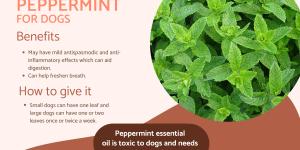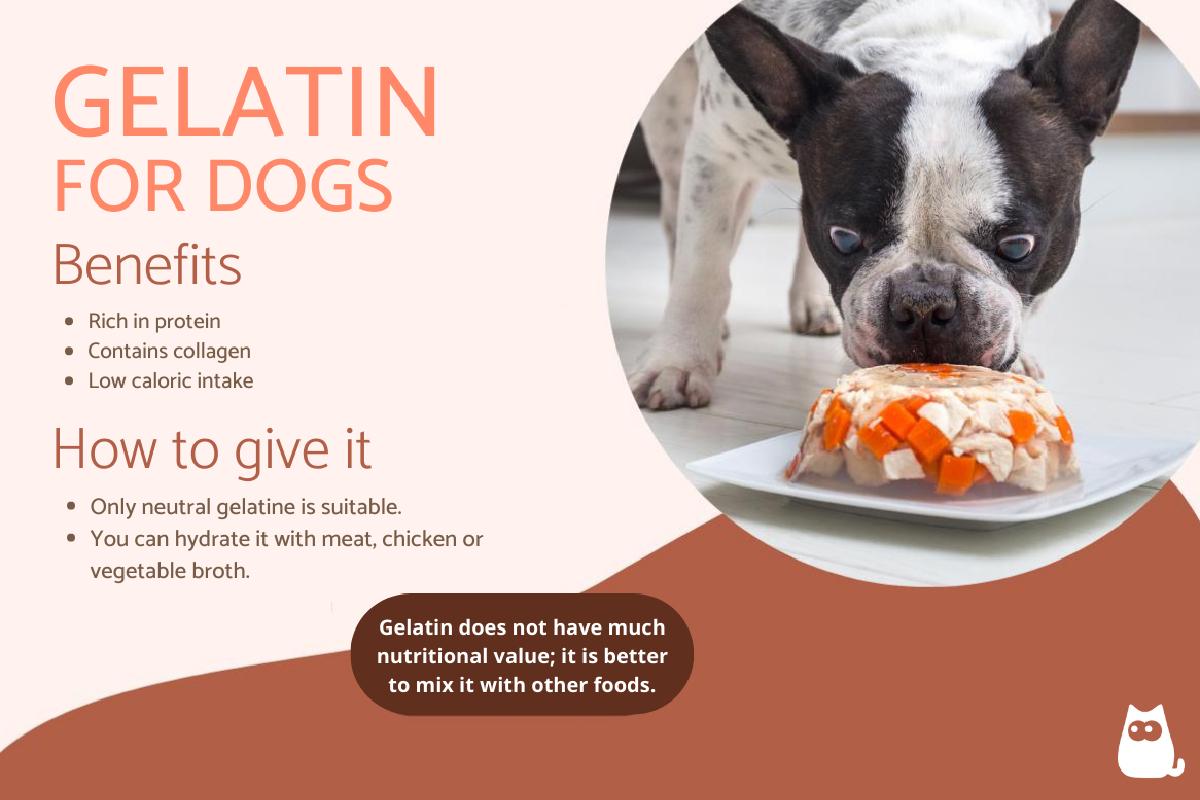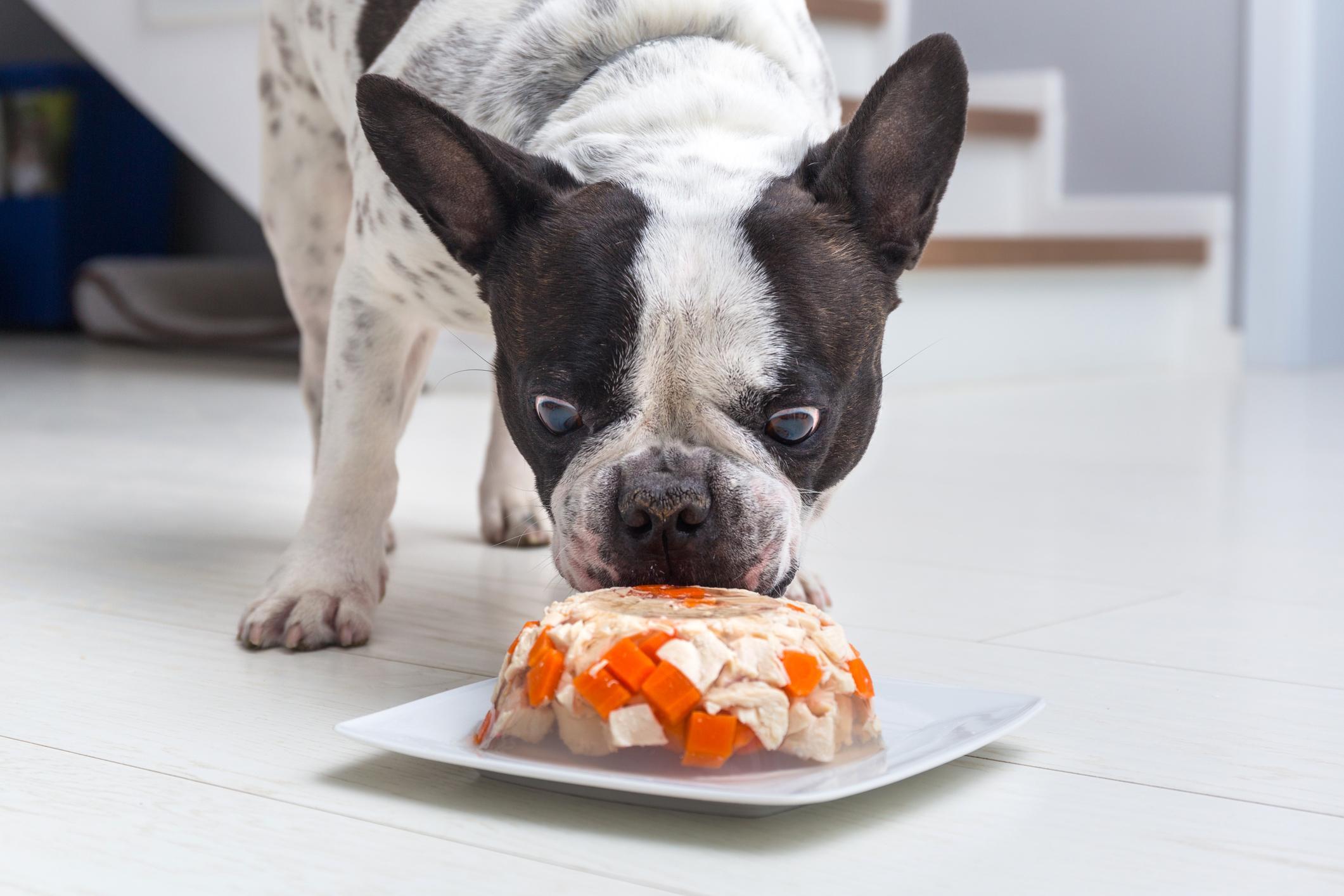Can Dogs Eat Gelatin?



See files for Dogs
Gelatin is a clear, tasteless protein obtained from cows or pigs. Gelatin is a common ingredient in soups, broths, sauces, gummy candies, marshmallows, cosmetics, and medicines. It is also used in personal care products, cosmetics, drug capsules and photography. It should not be confused with jelly or Jell-O, the gelatin dessert.
In the following AnimalWised article, you will learn everything you need to know about gelatin for dogs, whether it is safe and what benefits it can bring to dogs.
Is gelatin good for dogs?
Gelatin or gelatin is a transparent, colorless, tasteless food ingredient usually derived from the collagen of animal body parts. It is important to know that jelly is not the same as gelatin. Gelatin desserts, better known as jelly or Jello (due to its association with the Jell-O brand), are desserts made with the sweetened and flavored processed collagen product gelatin. In other words, most jellies are made from gelatin. However, gelatin is used not only in desserts, but also in a variety of foods.
Gelatin is a protein product obtained by partial hydrolysis of collagen (a protein derived from the bones, skins, tendons, and nerves of animals). Collagen itself is insoluble, but when it undergoes hydrolysis treatment, it becomes gelatin, a soluble, gelling or non-gelling product used in the food industry due to its great functional versatility.
Gelatin is a suitable product for dogs because it does not contain substances toxic to the dog's body. But, is it the same for jelly? We talk about it in the next section.
Is jelly good for dogs?
We already know that gelatin and jelly are not the same thing. We also know that gelatin is not toxic for dogs, but what about jelly? The simple answer is no, your dog should not eat jelly or jello. If your dog has been eating jelly, it will likely have a short-term negative impact on your dog's digestive system. However, eating flavored Jell-O over a long period of time can lead to long-term consequences for your dog.
The main problem with jello for dogs is its high sugar content. Just like for us humans, sugar is harmful for your dog. It can cause diarrhea, vomiting, and tooth decay. Dogs can gain weight from sugar, just like humans, and it can also lead to heart disease, diabetes, joint problems, lethargy, and breathing problems.
And what about those "sugar-free" flavored jellies? The truth is that dogs should not eat these either. In these products, the sugar is usually replaced with sweeteners, which are also not recommended for our dogs. Some, like xylitol, are even highly toxic to dogs' bodies.
In summary, we can conclude that dogs can eat neutral gelatin without flavor and preferably mixed with other foods. But when it comes to jelly, jello or other gelatin desserts, whether it contains sugar or not, is not suitable for dogs.
Benefits of gelatin for dogs
In this section, we will talk about the benefits that gelatin provides for dogs.
- High protein content: gelatin is one of the most protein-rich foods, as it contains 84 grams of protein per 100 grams of product. However, it is important to know that gelatin protein has a low biological value, as it does not contain a large amount of essential amino acids. This means that the contribution of gelatin alone cannot meet the protein needs of animals. To meet this need and ensure the contribution of all essential amino acids, it is necessary to combine this food with other proteins of greater biological value (such as meat, fish, egg, etc.).
- High collagen content: which helps maintain the elasticity of the skin, strengthens the coat and nails, and keeps the joints of the dog in good shape.
- Low calorie content: it contains no fat and no carbohydrates. Gelatin can be safely included in the diet of dogs without increasing the caloric content of their portion, which is especially beneficial for obese dogs or those prone to obesity.
- High amount of water: when gelatin coagulates, it forms a three-dimensional structure called a gel, which holds a large amount of liquid, normally water. For this reason, gelatin helps maintain the water balance of the organism. This property can be particularly useful to keep dogs hydrated who tend to drink little water, or to ensure hydration in hot weather.
- Mineral salts: in addition, gelatin provides a small amount of mineral salts, such as calcium, zinc, potassium, and magnesium.
You may be interested in this other article, where we talk about homemade recipes that are also low in calories.
How to give gelatin to my dog?
As we have seen in this article, the only gelatin that dogs can safely consume is neutral gelatin, without sugar or sweeteners.
If you regularly feed your dog homemade food, you can occasionally offer the ration mixed with gelatin. To do this, follow these instructions:
- Cook the ingredients as usual and chop them.
- Mix the neutral gelatin with meat, chicken or vegetable broth (always without salt).
- Add water as indicated by the manufacturer.
- Mix the ingredients with the broth-gelatin mixture
- Pour the mixture into a serving bowl and refrigerate until the mixture is curdled.
This way you can offer your dog his usual ration (with the same nutritional value and calorie content), but cold and with a different texture. Summer is a great time to use this option, since it allows us to cool our dogs and provide them with extra moisture through their food.
Another option is to prepare dog jelly in the form of treats. To do this, you need to:
- Hydrate the gelatin with meat, chicken or vegetable broth (without salt), following the manufacturer's instructions.
- Once the gelatin is hydrated, put the mixture in an ice tray or small molds and let it solidify in the refrigerator.
If you like, you can add other ingredients to the mixture that your dog likes (such as shredded chicken or chunks of meat) to make the treats even more appealing.
Dosage of gelatin for dogs
As we have seen, gelatin provides protein and some minerals and helps keep the body hydrated. On its own, however, gelatin does not have much nutritional value, since it provides hardly any calories and the biological value of its proteins is low. Therefore, although gelatin is a suitable food for dogs, it should not necessarily be part of their regular diet.
It can be used occasionally to offer rewards or to add a different texture and temperature to the daily ration, but not with the goal of nutritionally enriching the ration. Remember that the use of gelatin can be especially useful on hot days, as providing food or treats in the form of gelatin helps to cool our dogs and maintain their hydration.

Side effects of jelly for dogs
As mentioned before, the consumption of jellies intended for human consumption is negative for dogs because of their high sugar content and poor nutritional value. Sugar promotes the occurrence of:
- Gastrointestinal diseases
- Obesity
- Diabetes
In addition, these products often contain sweeteners, flavors, colors, and other additives that are generally not recommended for dogs. Indeed, sweeteners such as xylitol are highly toxic to dogs and can cause severe poisoning.
These are some of the most common side effects of xylitol in dogs:
- Upset stomach
- Vomiting
- Weakness
- Systemic depression
- Lethargy
- Lack of coordination
- Tremors
- Seizures
As you can see, sugar is extremely detrimental to dogs. You may be interested in this other article where we talk about normal blood sugar levels in dogs.
Contraindications of jelly for dogs
Although gelatin is a suitable food for dogs, there are certain situations in which its administration may be counterproductive:
- Dogs with allergies or food intolerances
- Dogs with dysphagia (difficulty swallowing)
- Dogs that are malnourished or underweight
If you want to read similar articles to Can Dogs Eat Gelatin?, we recommend you visit our Homemade diets category.






